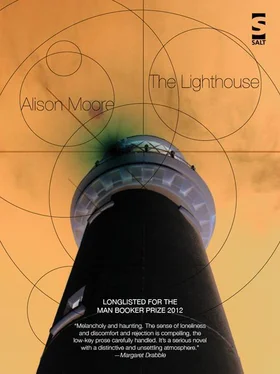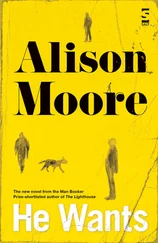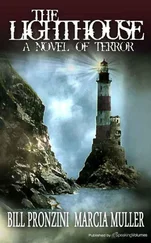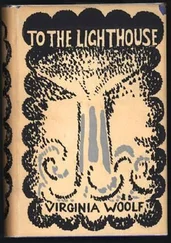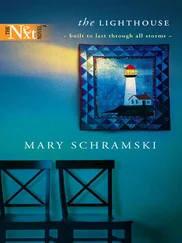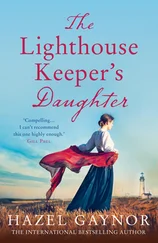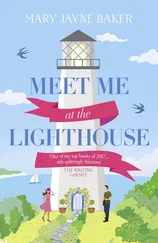As he drives south with his window down, his bare forearm, resting on the frame, burns.
After a couple of hours, he stops at a rest area to eat the meat pie which Carl’s mother gave him, savouring it, the perfect pastry melting in his mouth, the meat juice running down his chin and onto the front of his short-sleeved shirt.
He remembers a picnic in Cornwall, a family summer holiday just before his mother left: beef and onion in pastry with a forkhole pattern, lukewarm in a greasy paper bag; sitting on a cliff in blazing sunshine, looking at a lighthouse and listening to his father going on about the old beacon built by a notorious wrecker, a plunderer of stranded ships.
He returns to the motorway and drives until the end of the afternoon when he realises that he has missed his turning some way back. Unable — on the motorway, in between junctions — to turn around, he presses on, going in the wrong direction, accelerating.
Futh recalls sitting in the passenger seat of Angela’s car with a UK road atlas in his hands, looking on the map for the place names he saw signposted at each motorway exit they sped past, and it dawning on him that he was taking them the wrong way round the M25. He grew anxious but kept quiet, wanting to be mistaken, to be going the right way after all despite the mounting evidence to the contrary. Angela said, ‘This doesn’t feel right,’ but still he said nothing, putting off the moment when he would have to admit his mistake, when they would have to come off the motorway and go all the way back, and meanwhile just making things worse.
By the time he arrives at Hellhaus, it is dreadfully late. It is dark as he parks his car and walks up the street with his suitcase on wheels, heading towards the centre of the small town.
He has wondered whether this Hellhaus has similar origins to a Hellhaus he knows of in Saxony — the ruin of a structure sited at the intersection of forest paths, used in its day to see and signal the whereabouts of escaping game. But when he turns a corner and sees the hotel, he understands why it has this name, which translates as ‘bright house’ or ‘light house’. Whitewashed and moonlit, it is incandescent.
He feels again the tipping sensation he has experienced on and off since leaving the ferry. It feels like his soul is sliding out and then sliding back in again. His insides feel like the jelly in his father’s hot pork pies oozing through cracks in the crust.
He trudges up the final incline, exhausted from driving and hungry again, the hotel a beacon before him.

When the door opens, letting in the cool night air and some noise from the street, Ester turns towards it. A man walks in, a thin, pale man with thinning, mousy hair. He carries an anorak over one arm, and with the other he is pulling a suitcase on wheels. The door closes quietly behind him and the exterior sounds are shut out.
She stays sitting on her stool, tidying pieces of orange peel into the saucer of her coffee cup. The man comes to the bar, approaching the new girl, the little wheels of his suitcase clackety-clacking over the floorboards. ‘Futh,’ he says to the girl, ‘I’m Futh.’ The girl looks at him, asks him in German what he wants. ‘Ich bin Futh,’ he says.
When the girl continues to look blankly at him, he turns and looks around the room. Ester, who has been waiting for him all afternoon and all evening, lets him come to her. Clackety-clack, clackety-clack, goes his suitcase over the wooden floor, clackety-clack like a train, trundling to a stop. He stands in front of her, and she regards him, this man with gravy on his chin and on his shirt and even on the crotch of his trousers. ‘I’m Futh,’ he says again in English. ‘Someone’s expecting me.’
Ester climbs down off her seat and walks over to her desk. He follows her, chattering away. He says, ‘Are you Ester?’ She would prefer something more formal but lets it go.
She ticks his name off in her ledger and takes his key from a row of small hooks on the wall. ‘Room six,’ she says, putting the key into his hand.
He says, ‘Thank you, Ester.’
She takes the handle of his suitcase, wheels it into the hallway and presses the button to bring down the lift.
While Mr Futh is travelling up to the first floor, Ester goes to the kitchen to fetch the plate of cold cuts which was prepared for him at lunchtime and has been kept under clingfilm in the fridge since then.
She takes Mr Futh’s supper plate up in the lift and knocks on his door. When there is no answer, she lets herself in with her master key.
He is not in the bedroom. She can hear the shower running in the bathroom, can hear him singing in there. She would prefer not to have to talk to this man who keeps calling her Ester as if he knows her. She is still annoyed with him for being so late and not even apologising. She is obliged to feed the man — she wants to feed him, she always wants to feed men — but she would be pleased to get away without having to engage with him.
She puts the plate of cold meats down on the bedside table and peels off the cling film. It looks a little dry, but that is his own fault. She turns to look at the suitcase which is open on the bed.
There is nothing of interest in there, just clothes, and a few books at the bottom. Except, in amongst the clothes in which he arrived, in the pocket of his gravy-stained trousers, there is a silver lighthouse. About ten centimetres tall and three or four in diameter, it fits rather nicely inside her encircling hand. It has a four-sided tower and a lantern room with tiny storm panes and a domed top. In relief on one side it says ‘DRALLE’, the name of an old Hamburg perfumery. This ornate silver case ought to contain a cut-glass vial of a very expensive perfume, but Ester finds that it is empty, the scent missing.
When Ester was a child, her mother worked for a toiletries company, travelling a lot and leaving Ester with an au pair. Ester’s mother always came home with samples in her luggage. Having worn the same scent all her adult life, she gave her unwanted vials of perfume to Ester who collected them in a box on her dressing table and used them liberally, often sitting down to breakfast with a different scent on each pulse point.
Ester wanted to be a perfumier. She knew the names of many perfume houses — old and new, large and small — and their fragrances. She decided to create her own scent and went through her mother’s kitchen cupboards, combining lemon juice, peach juice, vanilla essence, herbs and spices, imagining that she was making the ultimate scent, one sniff of which would make someone fall in love with her. Completing it with shredded petals from her mother’s prized rose bush, Ester went to her parents’ bedroom and took her mother’s perfume from the dressing table. She poured it — her mother’s Eau de Parfum, her signature scent — down the sink and refilled the empty bottle with her own first perfume, a sticky concoction which she called ‘Ester’, presenting it as a gift to her mother when she came home.
Ester was given no more sample scents after that. The next person to give her perfume was Bernard.
Ester hears the shower being turned off, the shower curtain being drawn back, the clatter of the hoops being pulled along the rail. She drops the lighthouse back onto the pile of clothes and begins to leave. Halfway across the room, she hesitates, turns around and takes a step back towards the bed with her eye on the lighthouse. But she can hear him moving towards the bathroom door, still singing. She turns away again.
When the bathroom door opens, she is out in the corridor, heading for the stairs, the door to room six closing slowly behind her.
Читать дальше
